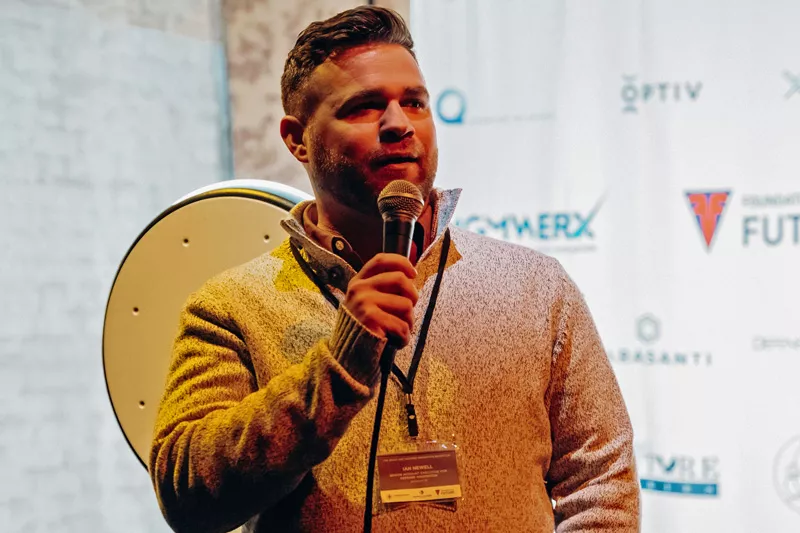By Army Captain Reserve Ian Newell
Approximately 62,000 active-duty Soldiers transition out of the U.S. Army every year. For me, that process began when I started my terminal leave in May 2021. After nearly a decade with the U.S. military, serving in Iraq, South Korea and Fort Hood, I finally found myself settling down in Austin, Texas. Although I had years of experience in leading global operations and project management, I still had no idea what I wanted to do, and I had the thought every transitioning Soldier experiences.
I need a job, and I need it now!
Thankfully, my father, Peter Newell, a successful Army officer turned entrepreneur, gave me solid advice: Be comfortable with being uncomfortable in order to reach your potential.
I started with a severe case of imposter syndrome, with the unshakable feeling that the skills and talents I accrued in my eight years in the Army wouldn’t translate to the civilian world. In units where commanders valued innovation, as in deployments, I exceeded expectations and helped drive mission success because I was able to try new approaches. But under other commanders, my ideas and abilities were limited to the rank on my chest. To quote a former commander the first time I had met him: “Defense Innovation is a 2030 vision which isn’t a real thing. If you care about this stuff, you should stop wasting time and get out of the military.”
Upon starting terminal leave, I began my journey of having conversations over “1,000 cups of coffee” to find my path.
Phase 1: Fact-Finding, Expanding Aperture, Discovering “Me”
(May to June: Cups of Coffee 1-250)
My first 100 conversations were a mess. I was all over the place, with no structure for who I was reaching out to or how to prepare or build relationships.

When I first transitioned, I thought that I had to go to UT Austin for an MBA because I loved Austin, Texas, and wanted to stay in the city. My first 10 conversations were with my family and close mentors I’ve known for years — the next 15 included leaders in military transition at UT Austin. For conversations 26-50, my network expanded from family friends to members of my dad’s company (BMNT) and startup founders who had launched the Hacking 4 Defense academic course. It became clear receiving an MBA was not the only way a transitioning officer could be successful in civilian life.
The following 200 coffees were incredibly difficult. Conversations 51-100 included tech VPs, startup founders and seasoned military officers about to transition themselves. A VP from a large tech company told me he would never hire me because my resume sounded like an “Army ******bag,” and a startup founder told me not to waste someone’s time by not doing research into the company and preparing questions.
I realized I needed to not only expand my education but to better prepare myself to answer people who look past my previous achievements and ask, “OK, what are you going to provide me now?” This led me to take my first few certification courses from Coursera. After completing the Google Project Manager certification, I dove headfirst into innovation, artificial intelligence and blockchain. And I dedicated myself to completing transition support services such as those provided by the COMMIT Foundation.
Those first 250 conversations helped me learn I was drawn to space and that my strengths lie in my ability to learn and innovate in complex environments rapidly. These realizations culminated in me applying for an internship with the Air Force Research Laboratory.
Phase 2: Transformational Phase
(July to September: Cups of Coffee 251-500)
It didn’t get any easier. I had depleted half of my savings and was starting a new internship in an unfamiliar field with the Air Force Research Laboratory, and I still didn’t know what I wanted to be when I “grew up.”
There were victories along the way — I received a full scholarship to U.C. Berkeley’s venture capital program and was accepted to AFRL’s SPECTRE fellowship. But it all suddenly stopped clicking. I had taken on way more than I could handle until one day, I sat on the floor of my closet, paralyzed with anxiety because I couldn’t choose an outfit to wear to a networking event. It was my “come to Jesus” moment.
Mental health is important in any transition into civilian life. But I ignored the signs and instead leaned into going out, eating poorly and working myself to exhaustion to try and manage the stress of transition without acknowledging what I was feeling.
To jumpstart my process, I signed up for local conferences I was interested in. Then, one evening after the Joint All Domain Command and Control conference, I headed to a local bar to get some work done for SpaceWERX. A group of men from the conference walked in, and I decided to introduce myself. A couple of beers and hours of conversation later, I had my first meaningful job offer in the artificial intelligence industry with a company called BigBear.ai, which uses AI and machine learning to facilitate data-driven decision support for government leaders.
Phase 3: Networking and Personal Growth
(September to January: Cups of Coffee 501-1,000+)
My number of “coffees” exponentially increased between September and January. I ended up accepting the job offer from BigBear.ai as the Senior Account Executive for Defense Innovation. I turned the offer with BigBear.ai down twice before accepting, when I finally stopped doubting my own skill set.
After being hired, conversations 501-1,000 were focused on networking for work and personal growth. The first half of these were internal in the company. I treated the first month with BigBear.ai as if my job was to get to know the people in the company and their challenges. My biggest takeaway: Companies need to be steadfast in their support of hiring veterans to give veterans the confidence and reassurance that their service would be an asset in their careers.


